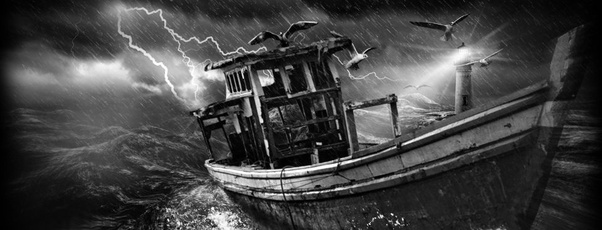“Do You Think The Story Of Jonah And The Whale Is True Or A Metaphor?” (Quora)
 Michael Laitman, On Quora: “Do you think the story of Jonah and the whale is true or a metaphor?“
Michael Laitman, On Quora: “Do you think the story of Jonah and the whale is true or a metaphor?“
The story of Jonah explains that we need to place the benefit of others ahead of our own.
It starts with God giving Jonah a mission, which is to pass a message to the people of Nineveh that they need to repent their evil ways, and change their attitudes to each other from hatred to love.
Jonah, however, dissatisfied with the mission, escapes it by boarding a ship and sailing away. His getaway sparks off a storm. The sailors eventually comprehend that Jonah is behind the storm, and as a result, they push him overboard. In the ocean, Jonah becomes swallowed by a whale, spends three days and three nights in its belly, and afterward gets discharged to land, where he then moves forth to Nineveh to complete his mission.
Jonah’s story holds immense significance to the Jewish people, and all the more so today than ever before.
The Jewish people, like Jonah, have an inescapable mission. It is the same mission today as it was in ancient Babylon, when Abraham united them as a nation upon the foundation of “love your neighbor as yourself”: to generate Jewish unity in order to become a positive example of connection for humanity, i.e., “a light unto the nations.”
The Israeli nation had been constructed as a sort of gateway by which the sparks of purity would shine upon the whole of the human race the world over. And these sparks multiply daily, like one who gives to the treasurer, until they are filled sufficiently, that is, until they develop to such an extent that they can understand the pleasantness and tranquility that are found in the kernel of love of others. – Yehuda Ashlag (Baal HaSulam), “The Arvut (Mutual Guarantee),” Item 24.
Over the course of history, the Jewish people have felt how the interaction between them and other nations functions: During times of Jewish unity, e.g., the First Temple, both Jews and humanity prospered; and on the contrary, during times when the Jewish people failed to rise in unity above their differences and divisions, anti-Semitism reared its ugly head together with various crises that struck the world.
As time passes, and the Jewish people continue failing to acknowledge their mission—to unite (“love your neighbor as yourself”) above differences (“love will cover all transgressions”) in order to become “a light unto the nations”—they head more and more toward a situation where unity appears to become a grave impossibility.
Jewish self-hatred gets out of hand as divisions between secular, religious, ultra-Orthodox, pro-Israel and anti-Israel Jews become painfully apparent. Unknowingly, the failure of the Jewish people to realize their mission heads them into a downward spiral of unfounded hatred, and prepares the conditions for an enormous storm.
During the Holocaust, the sailors in the Jonah story dressed up as Nazis; during the pogroms, they acted as Russians and Eastern Europeans; and during the Spanish Inquisition, they became Catholics.
In our era, we have just come out of the year with the highest recorded anti-Semitic crimes and threats in the United States, and a decade of anti-Semitic normalization around the world. Just after a spate of anti-Semitic crimes in New York at the close of 2019, concerned Jewish community members, lawmakers and politicians started expressing that a “slow-rolling pogrom” was unfolding in New York, and that the next Holocaust could take place in America—concepts that had previously seemed unthinkable in relation to Jews in America.
In the last few years, there has been a sharp rise in anti-Semitic crimes and threats running parallel to a sharp increase in many other problems: depression, suicide, drug abuse, social division, terrorism, and natural disasters, to name a few. The more humanity experiences crises and problems, the more their fingers point at the Jews as the source of their problems.
The Jonah story describes the roots of anti-Semitism.
Jonah’s escape from the mission he was granted describes the Jewish people’s escape from their role to unite above their divisions and exemplify that unity for humanity.
The sailors’ realization of Jonah as the cause of the storm, and the throwing of Jonah overboard today describes the rise of the Jews being blamed for all kinds of problems people experience.
The time will come when the Jews will have to be thrown overboard, and enter into the whale, i.e., undergo a serious scrutiny of what it means to be Jewish: Why do so many people hate the Jews? Also, how can the Jewish people improve the situation both for themselves and the world?
The question is only in how much suffering the Jewish people will need to experience until they reach that self-scrutiny: Is the current amount of anti-Semitism enough to spur on this self-scrutiny? Or, will the Jewish people continue escaping their mission, and will that suffering need to take on proportions of world wars and holocausts?
When the Jewish people agree to accept their role—to “love your friend as yourself” and to be “a light unto the nations”—will they and the world experience a new tendency toward peace, harmony and happiness, i.e. the whale that brings them to the safe shore, to Nineveh.








Discussion | Share Feedback | Ask a question